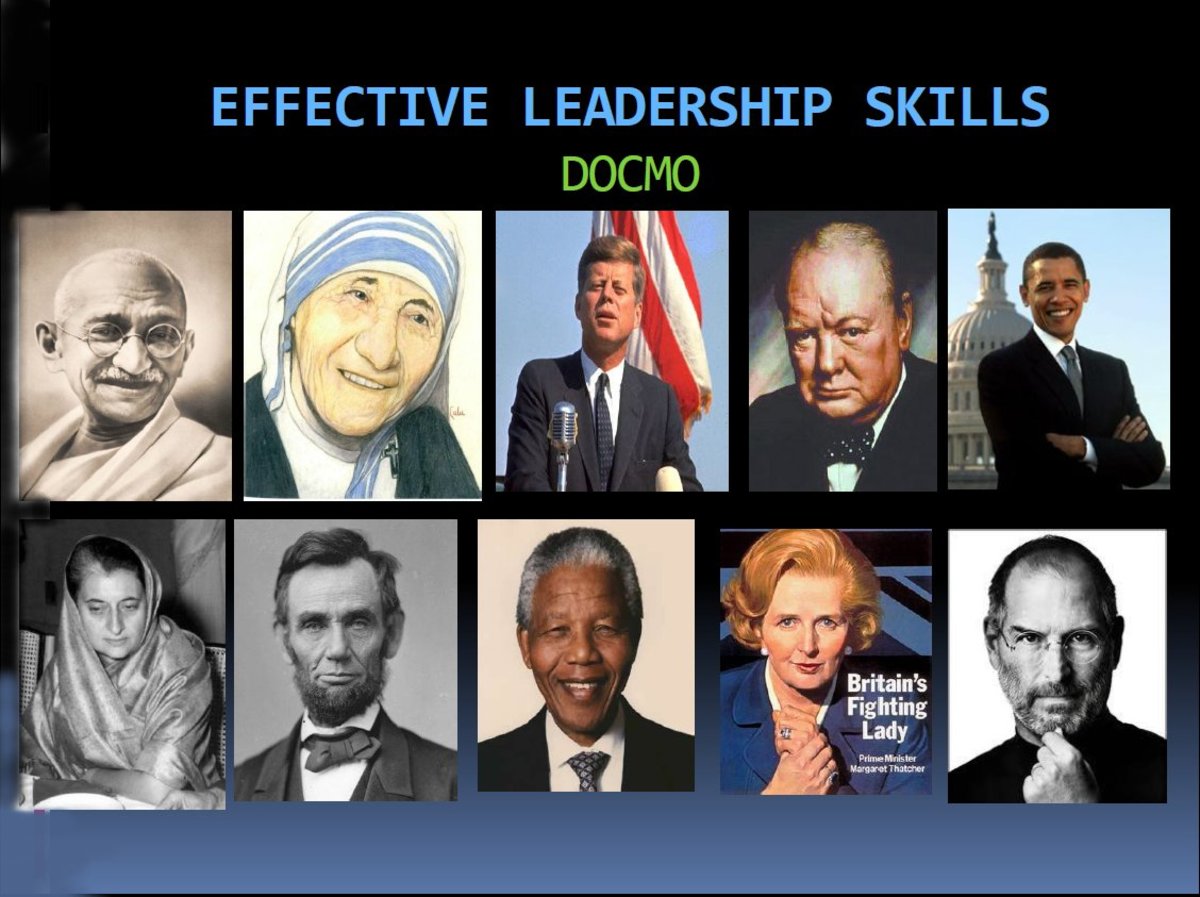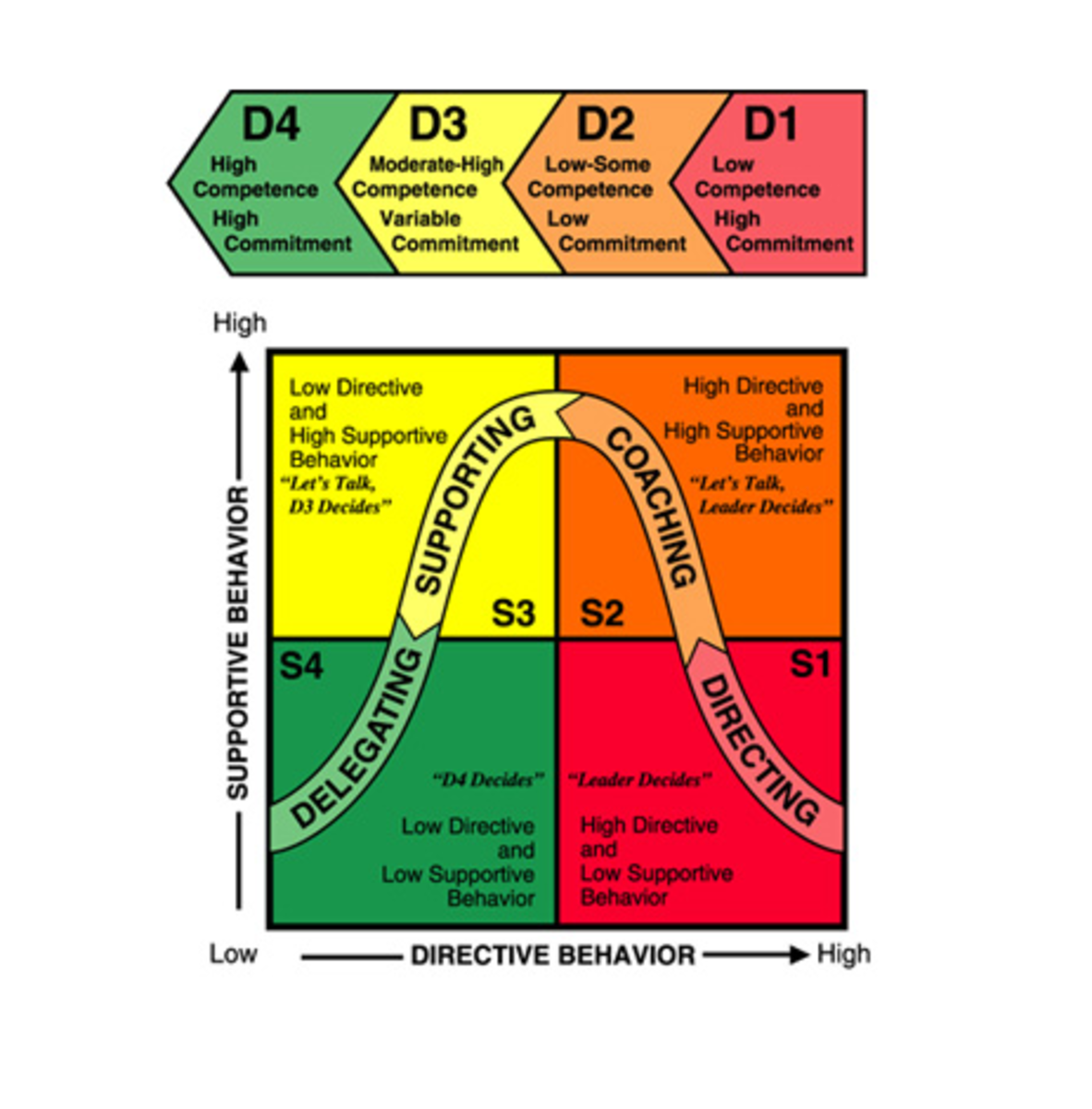Leadership Based on Biblical Principles - 10 Leadership Lessons from Moses
How Will You Lead Your People?

Moses has been highly regarded as one of the most important leaders in the history of Judaism and Christianity. By the mighty hand of God, Moses led over two million Jews escape captivity in Egypt and led them for 40 years until they came to the edge of their promised land. This hub discusses leadership based on biblical principles by taking a brief look at leadership lessons from Moses.
Effective Leaders Wait for the Right Timing
Effective leaders wait for the right timing is the first leadership lesson from Moses. According to Exodus Chapter 2, God saved Moses from death as a young child in order to raise him up for a special purpose. When he grew to be a young man, Moses felt the call of God to defend his people but went ahead of God's perfect timing by striking down an Egyptian taskmaster. As a result Moses had to flee to the desert for his safety and was not called back until he was 80 years old.
Top Level Leaders Don't Discount Their Own Abilities
The second leadership lesson from Moses is top level managers don't discount their own abilities. After Moses had been in the desert for many years, God appeared to him through a special vision and called him to go back to Egypt to deliver his Israelite people from their captivity. However, Moses objected to God's call, sighting a persistent stuttering problem that he felt disqualified him from the assignment. By looking down on himself, Moses almost lost the opportunity to achieve one of the greatest feats in human history i.e. leading two million plus people out of bondage and slavery.
Effective Leaders Exemplify Humility by Listening to Advisors
A third leadership lesson from Moses was effective leaders exemplify humility by listening to advisors. After Moses had led the Israelite people out of Egypt he would sit as the only judge to adjudicate the disputes of the people. One day his father-in-law visited him and witnessed how the people would line up in long lines to wait to see Moses. Upon seeing that, Moses' father-in-law pulled him aside and advised him to appoint other judges to alleviate the heavy load. Moses listened to his father-in-law and carried out his suggestion.
Note: Humility is not weakness. Humility is defined as having a right view of your self. Humility is not thinking too highly or too lowly of yourself, but having an accurate view and living accordingly. Moses realized that he could not continue to settle all the disputes for all the people of Israel so he listened to his father-in-law's advice. Effective leaders surround themselves with experts in every aspect of their business and are not afraid to listen to their advice.
Top Level Leaders Share Power and Responsibility
The fourth leadership principle exemplified by Moses is top level leaders share power and responsibility. Just as Moses took his father-in-law's advice and delegated the responsibility for judging disputes, he also delegated responsibility of leadership over the 12 tribes of Israel. Moreover, Moses shared communication duties with his brother Aaron and priestly duties with Aaron and the Levite clan. The power to delegate is a key trait of an effective leader.
Effective Leaders Mentor Other Potential Leaders
Mentoring other potential leaders is a fifth principle of effective leadership exemplified in the life of Moses. Moses demonstrated this principle in his relationship with Joshua who later succeeded him as leader of Israel. Mentoring means taking time to teach and train up others.
Effective Leaders Exemplify Self-Control
Another characteristic of effective leadership demonstrated by Moses is effective leaders exemplify self-control. In this case, Moses is a negative example, for although he showed great restraint for many years, he became so impatient in one instance that he misrepresented God and lost the opportunity to lead the people into the promised land. Not showing self-control is the fastest way to destroy leadership opportunities and organizations.
Top Level Biblical Leaders Cultivate a Relationship with God
Leadership based on biblical principles like those seen in Moses' life start with a relationship with God. While many of these principles can be worked out in a person's life without reference to God, they fail to mature to their full effect without God. Like Moses as a young man, those who refuse to acknowledge God in their leadership efforts are destined to run ahead of God, destroy their organizations through impetus acts of losing self-control, or failing to trust others through delegation. Effective biblical leaders cultivate a relationship with God.
Top Level Leaders Intercede for Their People
A sixth leadership principle exemplified in the life of Moses was top level leaders intercede for their people. This basically means that effective leaders are loyal to their followers even when their followers moan and complain. In today's street language, this means top leaders have their followers' backs. To intercede means that when their followers are in danger, the leader comes to their aide. When Moses was leading the Israelite people numerous times they complained and blamed God for their perceived poor conditions. On a few occasions God wanted to wipe the people out and start all over. In each case Moses prayed for the people and advocated for God's mercy on the people even though the people were less than kind to Moses, too.
Top Level Leaders Train Up Able Successors
This is a repeat of the fifth principle but takes the principle to a new level. Top level leaders not only mentor other leaders, they also train up able successors to effectively lead the organization after they have retired or passed on to eternity.
Effective Leaders Leave A Written Legacy
Finally, a tenth principle of effective leadership demonstrated by Moses is effective leaders are storytellers who leave a written legacy. After Moses had led the people to the edge of the Promise Land, he took time to reflect on all that God had done for the Israelite people from the time God sent him to back to Egypt to when the people arrived at the Jordan River opposite the Promised Land. Moses recounted all the miracles God had performed, all the laws he had set down, and spoke of the wonderful things would do in the future if only the people would follow God's ways. Writing the history of an organization is a great way to motivate future generations to take up the vision of the organization and carry it on into the future. Effective leaders are story tellers who leave a written legacy of the past in order to inspire those who follow for a better future.
Other hubs on leadership
- What Is Leadership In the 21st Century?
Leadership functions and roles may be changing in the 21st Century. In some workplaces, everyone is a member of a team and must coordinate efforts. In other places, one must work alone... - Servant Leadership: Seven Characteristics of Followe...
In her doctoral dissertation,Dr. Kathleen Patterson (2003) presented a theory of organizational leadership called servant leadership. Dr. Patterson's theory was an extension of servant leadership first... - Functions of Effective Leadership
For the purpose of clarity, the word group shall be used in this article to represent any collection of individuals gathered for a shared purpose. From an early age in human development, people have... - Leadership Based on Biblical Principles - 10 Leaders...
fotosearch.com The first leadership principle displayed by Nehemiah was a deep passion for his God, his people, and his homeland. He heard of the destruction of the wall in Jerusalem and became overwhelmed... - Top 5 Books on Leadership
Top 5 books for effective leadership...








